This “Limited Edition” Blu-ray box set from Radiance Films is available as of today.
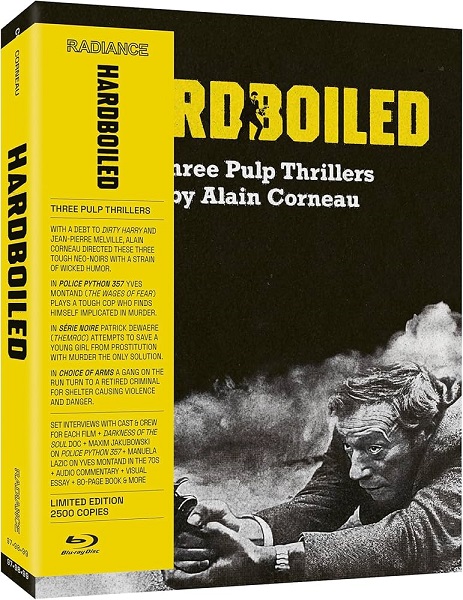
Film noir and crime pictures have always been a staple of US literature and cinema, but they aren’t the only countries to have delved into the genre. France has made its fair share of similarly-themed movies, some of which were even based on the same material as their American counterparts. Radiance Films is presenting a new Blu-ray box set, Hardboiled: Three Pulp Thrillers by Alain Corneau that contains a trio of remarkable pictures co-written and directed by the filmmaker.
According to the informative extras on the set, the book line Série Noir began picking up the rights to pulp books from the US, offering quick (and sometimes very loose) translations of the stories for French audiences. These films were directly inspired by those publications. The first is Police Python 357 (1976), an adaptation of the 1946 Kenneth Fearing novel, The Big Clock. The second is the appropriately titled Série Noire (1979), which is an updated take of the 1954 Jim Thompson book A Hell of a Woman.And the third picture in the set, Choice of Arms (1981), takes the tone of the previous films, but tells an original and specifically French story. All are excellent movies that will thrill anyone who admires the genre.
Police Python 357 follows Inspector Marc Ferrot (Yves Montand) , an honest but hardened police detective. Made in the mold of Dirty Harry, he does possess a slightly softer personality, carrying a lonely streak with him. One day he meets up with a young photographer Sylvia Leopardi (Stefania Sandrelli) and falls for her. He knows she’s involved with a prominent married man, but they can’t resist each other and she agrees to end her other relationship. As it turns out, that other man is Commissaire Ganay (François Périer), boss of Ferrot. Enraged with the break-up, he murders lover Leopardi at her apartment just before the lead stops by for a visit. He assumes she’s out and returns home, passing by a number of witnesses. The next day, he’s called in to investigate the young woman’s murder. While Ganay and his accepting wife Thérèse (Simone Signoret) move police focus to the mystery lover, Ferrot tries to avoid being identified and slow the investigation, frustrating partner Ménard (Mathieu Carrière).
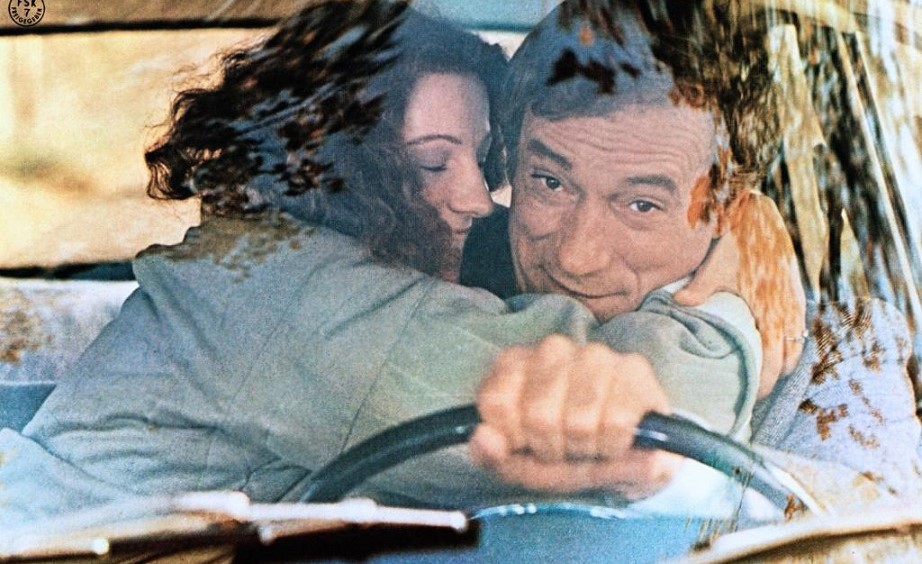
This is a fine adaptation that takes the main plot points of the original story, while putting a French spin on them. Ganay’s wife, who is bedridden, fully knows about her husband’s infidelities and is determined in advising and diverting attention away from her spouse. She is fascinating to watch. Of course, there’s plenty of tension as the characters come closer and closer to learning the full truth, and the climactic confrontations are shocking. This movie makes no bones about presenting its characters in a less-than-flattering light as its lead loses his ideals and the film ends on a downbeat note, adding a dose of extra realism to the proceedings. It’s a very compelling movie that will impress crime fans.
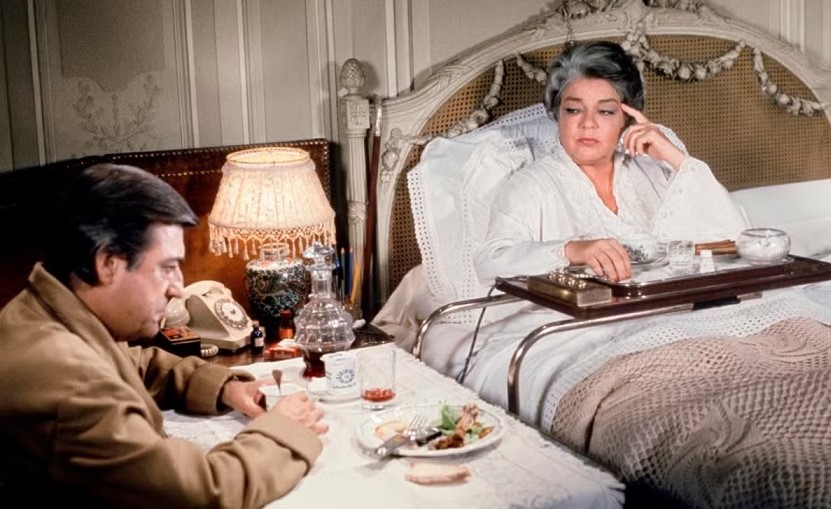
The movie is slickly photographed and the high-definition transfer looks quite strong, boasting great cityscapes during night exteriors and plenty of detail during the daytime scenes. There is a normal bit of grain here and there, but overall things look pretty exceptional. This is no doubt the best the movie has ever looked.
Extras on this disc are also engaging. There is an enlightening commentary track from film authority Mike White going over this adaptation. He makes note of background production information, changes from the novel and his own comments about this adaptation. The speaker takes some issue with the casting and likability of the main character (it wasn’t as much of a problem for me), but is very impressed by the movie in general. This is a great listen.
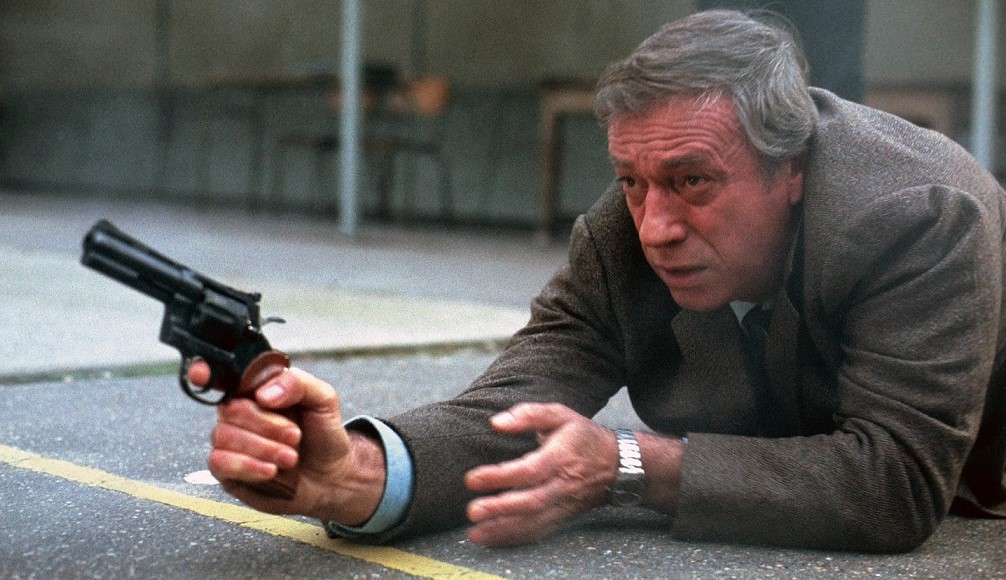
There is also an excellent video essay on the adaptation containing more trivia. It seems Corneau contacted the book’s author, Kenneth Fearing, and the pair worked on another interesting adaptation with a big cast that fell apart before production. A few years later, he managed to get the resources to do his own adaptation of The Big Clock. An archival interview with the director and co-star François Périer is also included, as well as a trailer.
Crime novelist Jim Thompson’s A Hell of a Woman was adapted into the film Série Noire, which appears in this set. Thompson’s work has always been extreme in its portrayals of violent men, frequently upsetting viewers. This feature doesn’t hold back in painting an ugly portrait of a figure losing his grip on sanity and resorting to violence as he tries to break free of the constraints of his life. The movie includes a phenomenal lead performance and, despite being little known in North America, is likely the best adaptation of a Thompson novel up to this point in cinematic history.
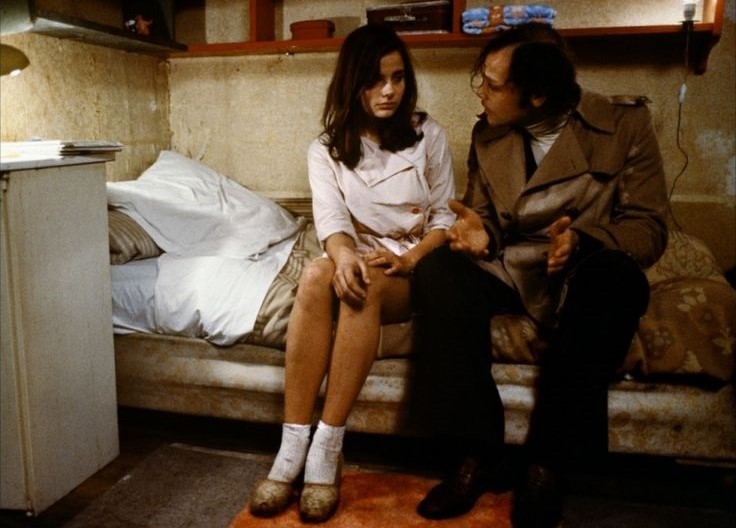
Poor, angry Parisian door-to-door salesman Franck Poupart (Patrick Dewaere) lives in poverty with his disapproving wife Jeanne (Myriam Boyer). Life is pretty rotten, until he knocks on the door of an elderly woman (Jeanne Herviale) who offers to trade the services of her 16-year-old niece Mona (Marie Trintignant) for one of the lead’s products. Poupart accepts and spends time with the youngster, but doesn’t initially take advantage of her. Instead, he falls in love and decides to “rescue” her (and himself) from a lift of misery. Unfortunately, he’s selfish, impulsive, scatterbrained, and his murderous plot results in more attempted slayings, including one on his pregnant wife.
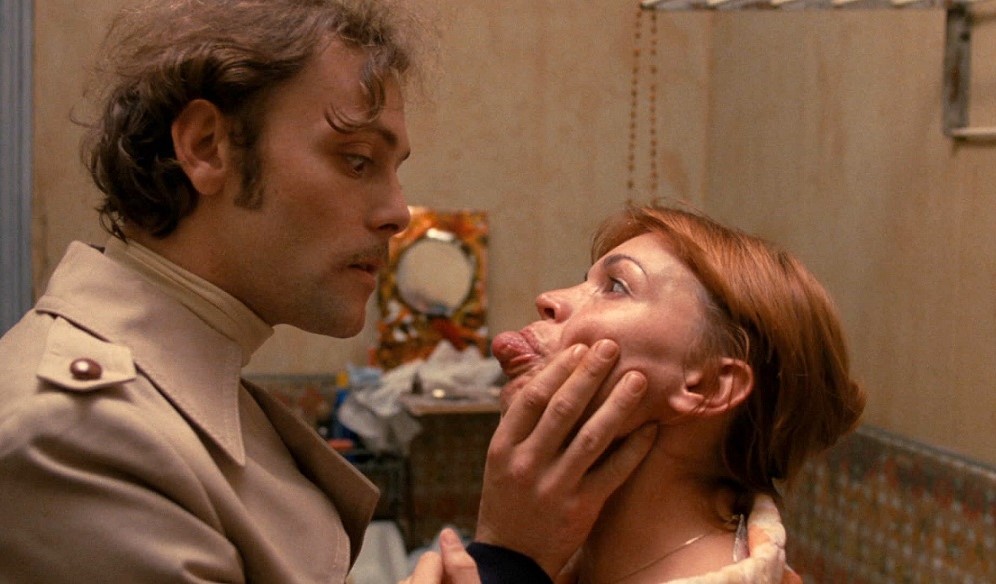
As jarring as it can be, this is an incredible movie with remarkable performances. The lead character is horrible, but Dewaere makes him engrossing and fascinating to watch. It’s also wonderfully shot and this transfer seems like the sharpest of the three films. You really feel like you’re in his nasty apartment and going through his ugly daily grind, witnessing his desperate and feeble attempts to try and earn some cash. It’s one that stays with you long after the credits. In France, the movie has become a big cult item and Dewaere’s performance has been noted by young actors as legendary. Apparently, even original author Thompson approved of this film when he saw it.
This title includes great extras. You get an hour-long making-of documentary that discusses the origins of the movie and how it was shot. The film has an improvisational feel to it, with Dewaere bouncing around and behaving erratically. Co-star Myriam Boyer suggests that despite rumors to the contrary, the cast actually stayed on script most of the time. What was unique was that the sets were lit so that the characters could move around them freely without having to hit specific marks, which likely was what added to the naturalism.
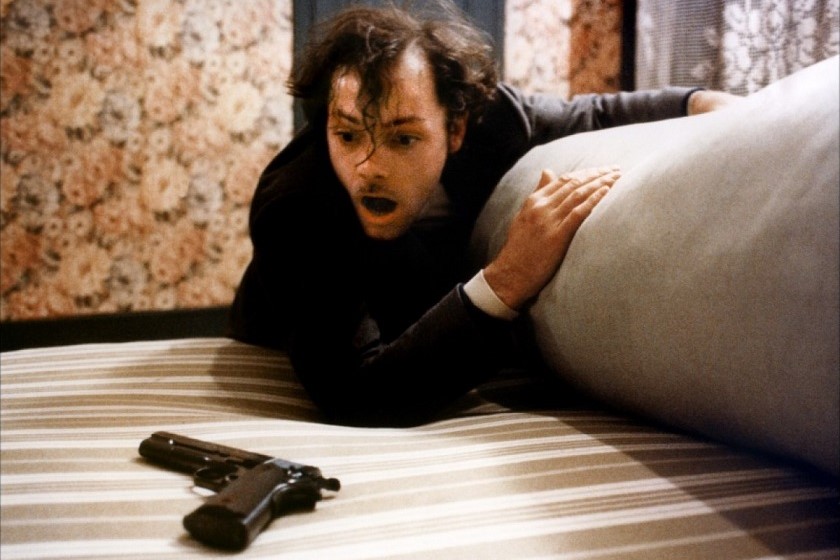
Other interesting details include the fact that young co-star Trintignant (who has a nude scene) was not able to see the movie she co-starred in because it was rated for audiences 18-and-older only. Viewers also learn that the film did reasonably well, but wasn’t a smash initially. Several believe this was because it was so unique and shocking that it was ahead of its time and took a few years to be appreciated. Viewers also learn that star Dewaere tragically took his own life only a few years after the production.
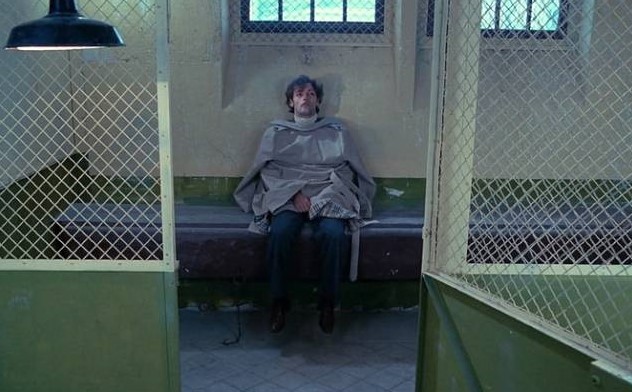
Additionally, there is a wonderful video essay about adaptations of the work of Jim Thompson. The critic notes that his writing is extremely difficult to adapt because the male characters are so flawed and violent. If you show the brutality on the page accurately, viewers can be offended, but downplaying it means that you’re glossing over the hideous traits of the characters and making their acts palatable. As such, the critic expects that it will be some time before filmmakers begin to attempt to make more adaptations of his work. The expert notes films that aren’t effective, ultimately praising Série Noire and a pair of titles in 1990, The Grifters (which features a female protagonist played by Angelica Huston), and After Dark, My Sweet as being exceptional. He also cites the work of Casey Affleck in 2010’s The Killer Inside Me as excellent. An archival interview with Corneau and co-star Trintignant is also included, along with a trailer.
The final film in the set is Choice of Arms, which is a bit more unusual because it is a specifically French tale that borrows from pulpy American crime writing, but isn’t a direct adaptation. It’s more of a character piece, but one that blurs the line between good and evil, and offers a few unexpected story twists.
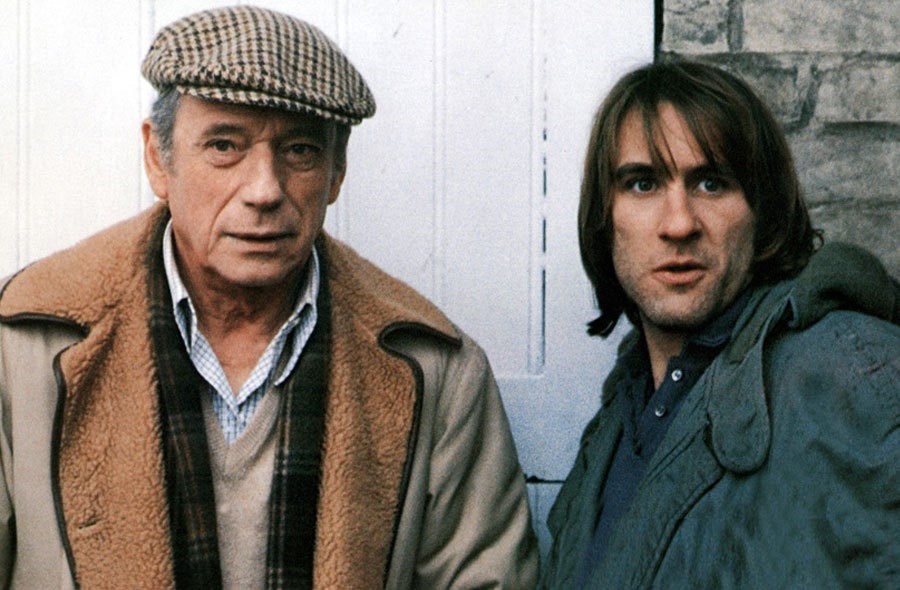
Noel Durieux (Yves Montand) is a former gangster who now lives a quiet life with wife Nicole (Catherine Deneuve) raising horses on a vast estate. It all goes sideways when old associate Serge (Pierre Forget) and his compatriot Mickey (Gérard Depardieu) break out of prison and kill policemen in the process. Noel agrees to let the wounded Serge quietly stay along with his pal, but the young, impulsive Mickey is hard to keep under control. There’s a big generational difference and the two butt heads. Serge doesn’t recover, and when inspectors Bonnardot (Michel Galabru) and Sarlat (Gérard Lanvin) begin hunting Mickey down, the criminal assumes that Noel ratted him out. He immediately seeks revenge. Things escalate as the two try to kill each other. Even the pair of policemen have major differences in their approaches, with the younger cop determined to use any method possible to gun down his target. It results in bloodshed and collateral damage.
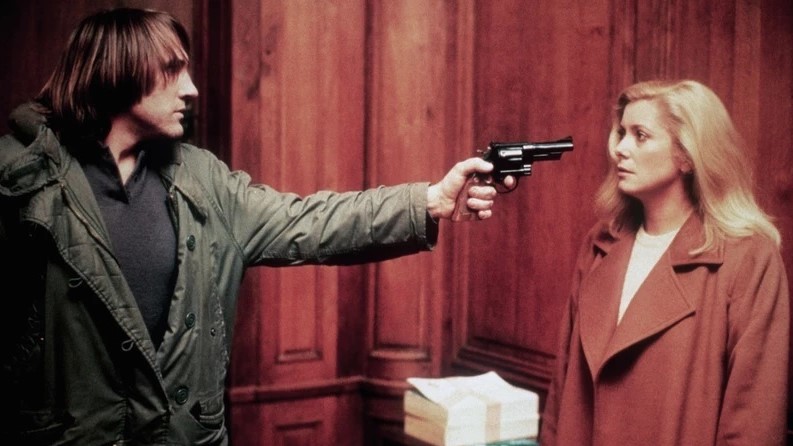
This is a fine character study, with the older Noel showing a bit of frailty in his old age, and Mickey’s hasty acts causing all sorts of horrible ramifications. He has a young daughter and while she doesn’t understand what’s happening, to some degree he appears to come to an understanding of how much he has let her down over the course of events. Additionally, the cops are anything but squeaky clean, with Sarlat ultimately inflicting as much unnecessary damage as Mickey. The solid cast and twisty story make this an interesting and engaging crime picture.
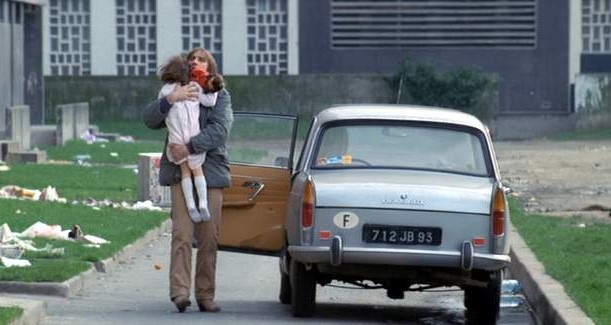
The picture on display is fine, although a little grainer than the other two films. There are some nighttime shots that aren’t as clean or crisp as the daytime sequences, but that’s simply how the film was photographed. Overall, it’s a good transfer.
Bonuses are also engaging. There is an introduction to the movie by a documentary filmmaker who remarks on the meanings of the picture. There is also an archival making-of with cast and crew interviews. It notes the pairing of young and old actors, their performer’s own different approaches, and how they ultimately found common ground both in the story and working together. And, you’ll find more interviews with Deneuve, Montand and Depardieu from the production. An entertaining featurette with a film expert on Yves Montand is also included. She does a wonderful job of detailing the entertainer’s career and why he was so popular with the French public. It seems that, despite his enormous success, his humble origins and work ethic earned him respect among the working-class, moviegoing public.
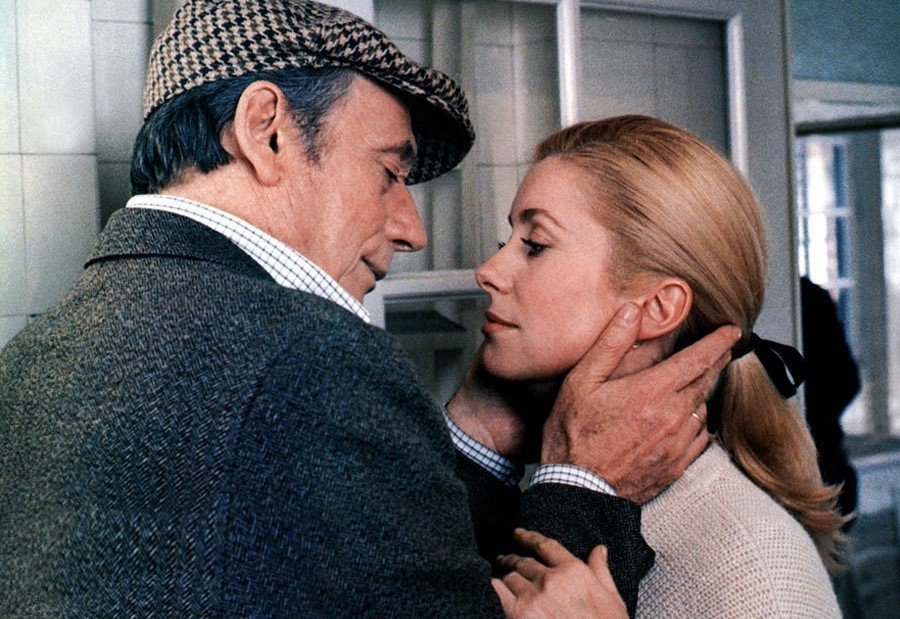
Additionally, this set also comes with reversible disc sleeves with designs based on the original posters for the movies. An 80-page booklet gives even more essays and notes about the movies.
If you like pulp crime thrillers and are curious about how international filmmakers interpreted this material and made it their own, Hardboiled: Three Pulp Thrillers by Alain Corneau is a great collection. It contains a trio of top-notch films proving the French can do it as well as anyone. The titles will be brand new to most viewers in this part of the world and you may leave with a newfound appreciation for the genre (as well as wanting to see several other titles). Be sure to pick it up if you get the chance.


